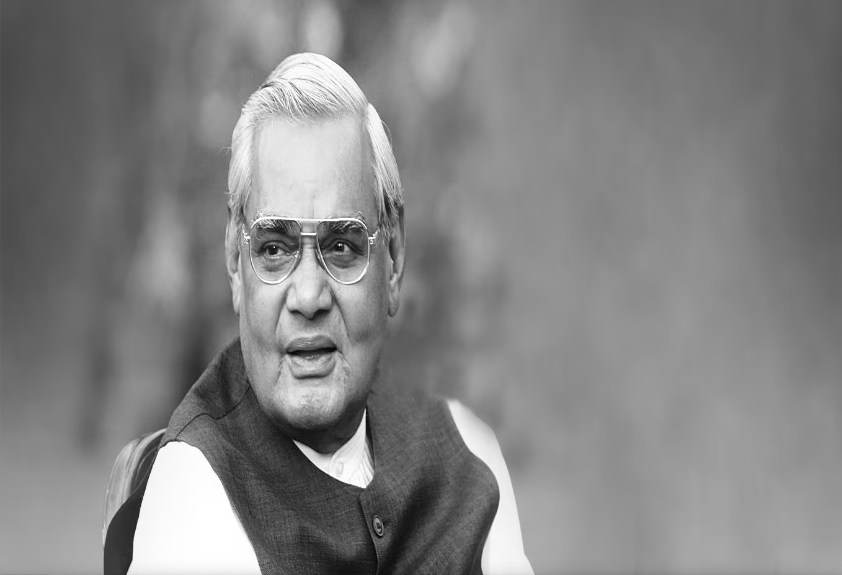New Book Discloses Why Atal Bihari Vajpayee Turned Down Chance To Become President
In the annals of India’s political history, Atal Bihari Vajpayee stands as a figure of great wisdom and statesmanship. His leadership, marked by sagacity and an unwavering commitment to democratic principles, has left an indelible mark on the nation. A testament to his noble character recently came to light in a new book by his media advisor, Ashok Tandon, who served in this role during Mr. Vajpayee’s tenure as Prime Minister from 1998 to 2004. In his book, “The Reverse Swing: Colonialism to Cooperation,” Tandon reveals a remarkable incident highlighting Mr. Vajpayee’s humility and dedication to India’s democratic values.
The revelation centers around 2002, a pivotal moment when the question of India’s presidency loomed large. After the ending of KR Narayan’s term as President, the nation was in need of a new leader. What makes this episode extraordinary is Mr. Vajpayee’s response to the suggestion that he should ascend to the highest ceremonial office in the land.
The political landscape was rife with discussions about Mr. Vajpayee becoming the next President. His own team recommended that he be nominated as the National Democratic Alliance’s (NDA) presidential candidate, with the understanding that LK Advani would take over the role of Prime Minister. It seemed like a logical and attractive proposition, yet Mr. Vajpayee had profound reservations.
He believed that if a sitting Prime Minister, particularly one with a substantial majority, were elected as President, it would send a disconcerting message to the nation. This, in his view, would undermine the principles of India’s parliamentary democracy and establish a precarious precedent for future leaders. In essence, Mr. Vajpayee was apprehensive about any move that might compromise the foundations of India’s democracy.
“I remember, Sonia Gandhi, Pranab Mukherjee and Dr. Manmohan Singh came to meet him,” Tandon writes. “Vajpayee virtually surprised them by disclosing officially for the first time that the NDA had decided to field Dr. APJ Abdul Kalam for the Presidential election.”
It’s reported that following Mr. Vajpayee’s revelation, there was a moment of stunned silence. It was Sonia Gandhi who eventually spoke, stating, “We are flabbergasted by your choice. We have no option but to support him. But we will discuss your proposal and take a decision.”
The choice of Dr. APJ Abdul Kalam for the presidency was indeed a remarkable one. Dr. Kalam, fondly known as the “People’s President,” went on to become one of the most beloved and respected Presidents in India’s history.
Atal Bihari Vajpayee’s decision not to pursue the presidency for himself and instead recommend a candidate whom he believed embodied the spirit of the nation reflects the selflessness and humility that characterized his political career. His commitment to preserving the integrity of India’s parliamentary democracy is a lesson in leadership, setting a precedent for leaders to follow.
Mr. Vajpayee’s actions serve as a reminder of the kind of leadership India needs – one that places the nation’s interests and its democratic values above personal ambition. His legacy endures not only in his policies and decisions but also in the exemplary character he displayed throughout his remarkable political journey.

